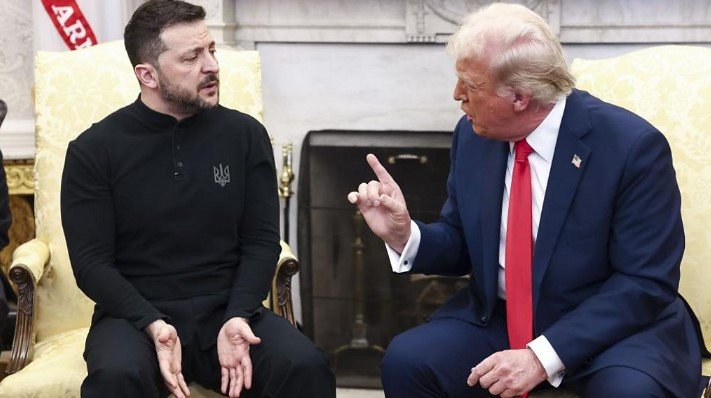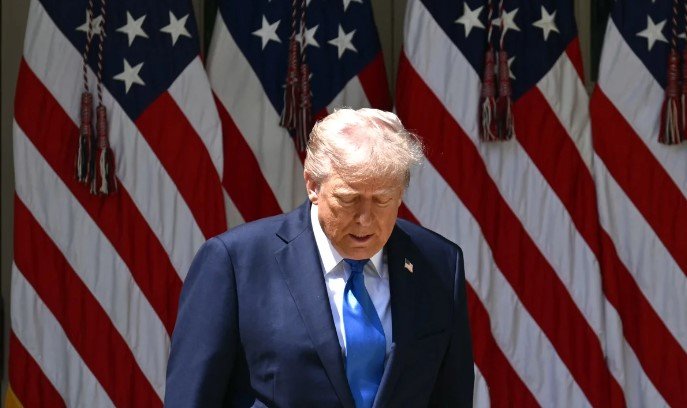Kyiv’s Mayor, Vitali Klitschko, shocked many when he publicly asserted that Ukraine might one day have to bear the unbearable brunt by considering painful compromises, including ceding territory to achieve long-lasting peace with Russia. His statement is bound to ignite fierce debates within the country and amongst international allies. However, for Klitschko, these remarks highlight the multifaceted nature of a war that has been ongoing for more than two years now, with no decisive conclusion in sight.
Tough Strategic Yet Difficult Consequences
A few days ago, Klitschko was part of an interview with a European media institution. The now prominent political figure and former boxing heavyweight champion suggested that the Ukrainian public and government should start accepting every single possible outcome resulting from the war. While he acknowledges the need to be strong for their land, he highlighted the need for realism in this scenario, pointing out the immense costs. “We have to defend our land and put up a strong front. Realistically speaking, however, the endgame might have some excruciating decisions.”
His phrasing, careful as it is, suggests a more practical approach, one that diverges from the usually steadfast tone utilized by Ukrainian President Volodymyr Zelenskyy. This also diverges from the original wartime narrative of the country, which sought full Ukrainian sovereign control over Crimea and the Donbas region, both currently held by Russia.

Reactions from the Ukrainian Government and Allies
Kyiv officials are now aware of the mayor’s comments. Mykhailo Podolyak, an advisor to President Zelensky, reacted immediately, saying, “Ukraine will not negotiate any territorial concessions. Such ideas are fatal for international law, and only benefit the aggressor.”
As well, many Ukrainian citizens, especially those from the Russian-occupied regions, expressed their anger and concern on social media platforms. A resident from Kharkiv said on X (formerly Twitter), “We did not lose family and friends just to surrender. Every single inch of land is priceless.”
Thus far, Western allies, led by the United States and the European Union, have withheld any remarks regarding Klitschko’s suggestion. Analysts, however, suggest that the policy of continuous military aid might leave some Western policymakers to ponder the idea of a mediated resolution, silently steering the narrative. This is especially true if Ukrainian advances slow down.
A Shift in Public Sentiment?
Klitschko’s comments show an increasingly prevalent attitude among citizens in some parts of Ukraine. The first few months of the war were characterized by a strong sense of patriotic and civic unity, but now, the long-lasting conflict, together with economic hardship, large-scale displacement, and a constant threat of missile strikes, is taking a toll on the collective national mental state.
Current polls indicate a slight reduction in the number of Ukrainians who perceive the full restoration of territorial integrity as achievable. A survey conducted in March 2025 by the Ukrainian Institute for Sociological Studies indicates that 58% of respondents are still willing to fight until sovereignty is fully restored, which is a steep decline from 71% in 2023. In contrast, 24% believe peace negotiations need to happen, even if it requires temporarily surrendering parts of the territory.
Echoes of Historical Precedents
Klitschko’s comments bring to mind stark reminders of past Eurocentric territorial struggles. The concept of relinquishing land in return for peace is not unprecedented, though it continues to be highly contentious. The 1938 Munich agreement, where European powers relinquished Czechoslovakian territory to Germany in anticipation of a war, is notorious for being an act of appeasement that backfired.
Despite this, others point to the Korean War armistice as being more relevant. There was no formal peace treaty, yet a de facto division of the peninsula calmed tensions greatly. Would Ukraine and Russia come to such an arrangement of frozen conflict? There appears to be the belief that all options, however unsavory, need to be considered.
Russia’s Stance on the Issue
Moscow views annexation as the central aspect of its justification for the war. The Kremlin forcibly claims Crimea Конференция and supports the separatist movement of eastern Ukraine, asserting that these territories historically belong to Russia. Furthermore, Putin has persistently argued that Ukraine will need to accept a “new reality” to achieve any form of peace.
Russia rewards media that bolster the framing of Russia, proposing new terms based on Klitschko’s comments. President Vladimir Putin uses these comments from Klitshcko as reasoning to act more aggressively towards Ukraine during future negotiations.
Klitshko Explains His Statements
In an attempt to contain the growing political backlash, Klitschko later published a memorandum through his official Telegram channel. “I am not calling for a retreat or a lay down of arms,” stated Slava Klitsko. “But we must start strategically thinking about a long-term vision of how we want our country to be. Real peace will only come through strength, unity, and perhaps some very difficult compromises.”
Also, let it be clear that he was only using these statements as a form a discussion starter and not an actual policy advocate. He explained: “Nothing changes with my thoughts that if the citizens of Ukraine change their mind, then it is the people and their elected leaders who will ultimately decide the course of the nation.”
Global actors such as Turkey, China, and the Vatican City have intermittently proposed frameworks for international peace. Most of these proposals incorporate a ceasefire and demilitarized zones, as well as negotiations divided into phases. However, none have tackled the controversial territorial issue in a manner that is agreeable to both parties.
The United Nations does call upon Russia and Ukraine to observe international boundaries, but such requests without enforcement tend to be ineffective. During this time, the war seems unending, with Ukraine dependent on assistance from the West, and Russia drawing on its boundless arsenal of personnel and weaponry.
Ukraine’s Future Prospects
As Ukraine mutely progresses into another year of conflict, Klitschko’s comments might just advance the discussion on potential matters open for deliberation regarding peace. Currently, the official stance still stands: no territory will be conceded, and no compromise will be made.
Eventually, realities on the war front, the economic damage, and the psychological burden atop millions of Ukrainians may force them to consider adapting their outlook on politics, which seems facile today.
While Klitschko’s comments may have shocked many, they capture the grim reality that comes with contemporary warfare: survival and sovereignty are often at odds, and nations must contend with the costly choices they face if they fight, and what they are willing to forfeit.
Table of Contents
Wrap-Up
While Klitschko’s comments indicate more strategic contemplation that is happening behind the scenes, his position remains deeply unpopular and politically sensitive in Ukraine. Whether or not his comments catalyze a change in broader policy will depend largely on the Ukrainian sentiment and their stance on the battlefield.



